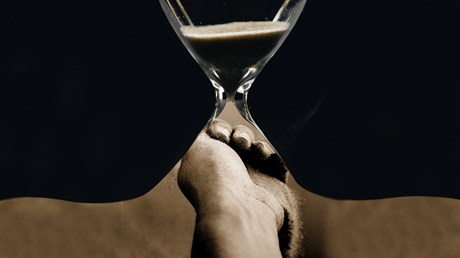In the New Year, we must view our time through a divine lens.

A month after the World Health Organization declared COVID-19 a global pandemic on March 11, 2020, a debate raged about the responsibilities of those of us turned safely inside. For those privileged enough to find their calendars suddenly cleared, what should we do with all this newfound time? Should we perfect our baking skills? Learn another language? Launch a business?
But in her article for Wired, writer Laurie Penny took issue with those “lucky enough to be able to shelter in place” who were “using that time to launch podcasts and personal projects and life-hack [their] way to some cargo-cult pastiche of normality.” In her essay, Penny defiantly opposed the idea that we were most optimized when we were most productive.
“‘Productivity,’” she argued, “is not a synonym for health, or for safety, or for sanity.”
In theory, I might have agreed with Penny. But busy had always been the most recognizable version of me. Like almost everyone, I counted motion as meaning. While I was getting things done, I felt useful to the world—even to God.
So, in the spring of 2020, I doubled down on time-management strategies. I read more books. I made longer lists. I cleaned every closet in the house, all in the effort to stem the tide of time-anxiety, a word to name the panic attached to modernity’s scarcest resource.
I felt worse and worse and worse.
Of the many traumas the COVID-19 pandemic inflicted on the world, its disruption to our experience of time is certainly one. Years have been entirely eclipsed from memory, time now cleaved into the before and the after. If for one brief and hallowed moment, we gained a sense of time as something to receive, not manage—perhaps ...
from Christianity Today Magazine
Umn ministry


.gif)

.gif)
.gif)
